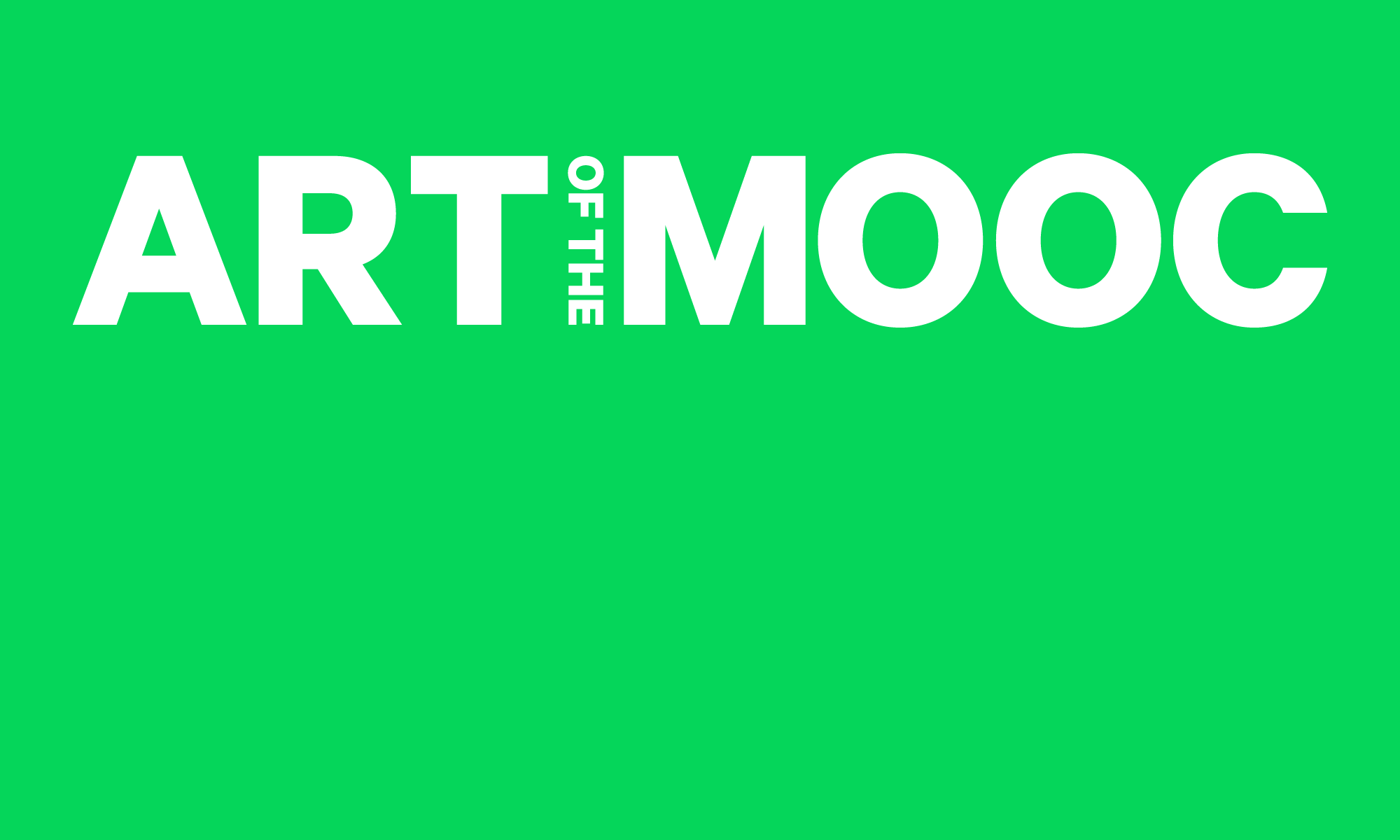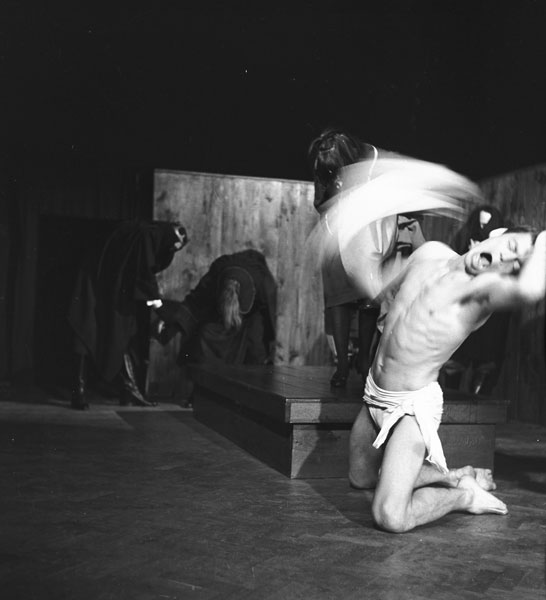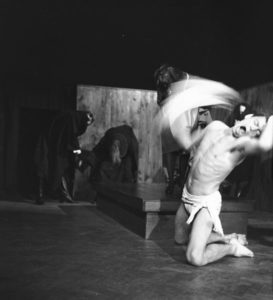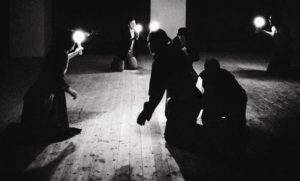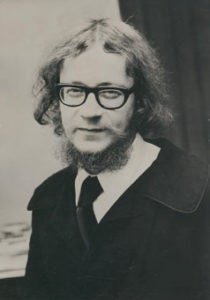The experimental Polish theater director, Jerzy Grotowski, envisioned the body as a vessel for otherworldly spirits and for ancient traditions. Perhaps best known for organizing “happenings” in the 60s and for his disciple Andre Gregory’s appearance in My Dinner with Andre, Grotowski had a varied practice ranging from ritual to physical theater to performance art. In all of these forms, though, the body is a way to access things beyond the bounds of daily life.
In his manifesto, Towards a Poor Theatre, Grotowski compares the actor to a Christlike figure; the actor sacrifices their body onstage for the benefit an audience. In return, the body can capture intense states of emotion. In his work in physical theater, this meant channeling a character or an action. In his period making what he called “art as a vehicle,” he hoped to capture spirits of ancestors and traditions from a primitive past (as an antidote to the modern world). Grotowski understood that motion contains emotion and that the body can contain the spiritual in addition to the material. His vision of physical theater and of the performer’s sacrifice continues to inform many directors and performers (myself included).
